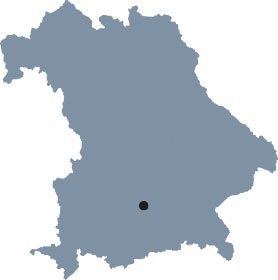The Proteomes that Feed the World
How much do we currently know about the proteins in our food crops? The answer is: surprisingly little. Considering that these proteins sustain all complex life on earth, and interest in plant-based diets continues to grow due to environmental, ethical and health concerns, deeper research into crop proteins is of utmost importance. This program brings together international doctoral candidates to work together and fill this knowledge gap, thereby elucidating “The Proteomes that Feed the World”.
| Degree | PhD |
| Duration of study | Four years |
| Place of study | Freising (TUM Campus Weihenstephan) |
| Admission requirements | Master's degree in a Life Science or Bioinformatics |
| Language | English |
| Application deadline | Currently no call for applications |
| Head | Prof. Dr. Bernhard Küster Prof. Dr. Brigitte Poppenberger |
| Coordinator | Katharina Eiseler Contact the coordinator |
| Further information | Website "Proteomes that Feed the World" |
Training future industry, academic and civic leaders
The International Doctorate Program "Leadership Research Training Network: The Proteomes that Feed the World" (LTRN360), funded by the Elite Network of Bavaria, gives the participating doctoral candidates the opportunity to obtain their doctoral degrees within a cross-disciplinary matrix-style organization that works towards a common goal: to create a proteome atlas for the 100 most important crops for human nutrition. While working on their individual research projects, which span a diverse range of topics, from bioinformatics to plant breeding to food chemistry, our doctoral candidates will expand their breadth of knowledge and develop communication, collaboration and project management skills through their contributions to the proteome atlas, and participation in regular workshops and mini symposia.
This highly international, collaborative doctoral program also aims to cultivate the doctoral candidates interpersonal and intercultural competence – both essential characteristics of effective leaders.
Furthermore, our doctoral candidates work to embody the goals of the Bavarian research landscape: to produce innovative technologies and groundbreaking discoveries with worldwide reach and high socio-economic impact.


While crop genomes are increasingly being elucidated, little is known about the proteomes of these plants. Proteomes are the set of proteins that carry out and control almost every aspect of life.
Prof. Dr. Bernhard Küster
Using proteomics and plant science to address global challenges
Proteomics is a steadily evolving interdisciplinary field that is concerned with the study of proteins at a range of scales, from single cells to entire organisms. Mass-spectrometry is the workhorse of large-scale proteomics, which identifies, localizes and quantifies the proteins present in entire organisms, making it a core component of the crop-proteome engine. Further study of the interactions between different proteins within the proteome, and the changes in protein expression and/or modification levels in response to stresses and different conditions provide deeper insights into biological processes in plants. Plant scientists will contribute their expertise in plant breeding, sourcing and sample preparation, and collaborate with mass spectrometry specialists to generate the raw proteomic data for all 100 crop species, which will be analyzed with the help of bioinformaticians. As the resulting crop proteome atlas will be made publicly available, the impact this work will make on the food and pharmaceutical industries, as well as the global scientific community cannot be understated. In addition, our DCs will work on their own individual projects, many of which are related to counteracting the devastating effects of climate change, pests and microbial infections on crop yield and quality, and understanding how plants adapt to their environments.


